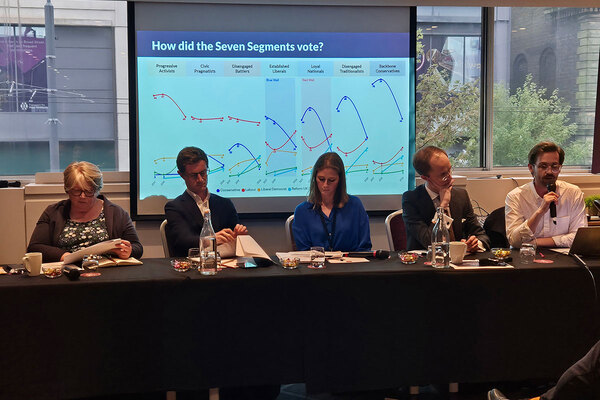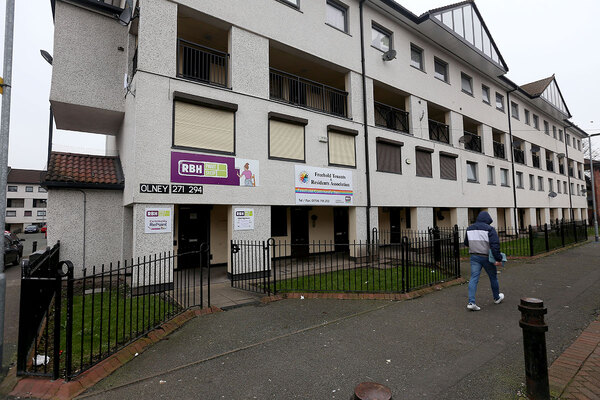Shared ownership changes will have ‘major impact’ for landlords, lawyers say
Social landlords operating shared ownership are being urged to prepare for major changes to their legal options around the tenure under the government’s Renters’ Rights Bill.
Lawyers are warning that landlords will see a “significant shift” in how they can recover rent and service charge arrears, with extra staff training expected to be needed.
The changes will potentially give more powers to residents.
Under the Renters’ Rights Bill, which was unveiled last month, shared ownership leases of more than seven years will no longer be classed as assured short-hold tenancies.
As a result, landlords of shared ownership homes will no longer be able to serve a notice of seeking possession (NSP) under the Housing Act 1988.
Ben Ramsay, a paralegal at law firm Trowers and Hamlins, told Inside Housing: “The inability to serve an NSP will likely have a major impact on a landlord’s ability to threaten possession, as a means to recover rent and service charge arrears, resulting in a significant shift in income recovery processes for shared ownership.”
Giles Peaker, a partner at law firm Anthony Gold, said landlords will have to “adapt very quickly” to “a whole new way of dealing with possessions and defaults”.
He added: “Landlords will have to go through the forfeiture route. This means for everything except rent arrears, they would have to go through the court of tribunal to get a determination that there has been a breach of lease and then eventually start possession proceedings for forfeiture.”
However, Mr Ramsay pointed out there will be some “breathing space” for landlords as the changes will not come into force until two months after the bill becomes law.
“Crucially, if possession proceedings relying on a valid NSP have commenced, the shared ownership lease will remain an assured tenancy and the NSP remains valid until when such proceedings have concluded,” he said.
Mr Ramsay said the “best course” of action is for landlords to review their arrears cases and “act appropriately while the option of serving NSP remains open to them”.
He added: “Landlords should also begin to review their current procedures and familiarise themselves with the forfeiture process, in readiness for the Bill becoming law.”
The first reading of the Renters’ Rights Bill took place last month and is expected to receive royal assent by summer next year at the latest.
G15 landlord Metropolitan Thames Valley Housing (MTVH) said it welcomed the proposed changes and had been calling for this approach for “many years” as it will ensure shared owners are “rightly treated as leaseholders”.
Tim Millns, director of homeownership at the 57,000-home landlord, said: “At MTVH, it has always been our policy to align shared owners with leaseholders, recognising their investment in their properties and their status as homeowners.
“Our colleagues are experienced in the application of these policies to shared owners and we maintain frequent contact with them to continually improve our processes and to ensure they meet residents’ expectations.”
Labour has yet to reveal its stance on shared ownership, with the tenure attracting a number of negative media headlines in the last few years due to the experience of some residents.
In March, a cross-party committee of MPs called for “urgent” reforms to the tenure after concluding that uncapped service charges, rising rents and unfair maintenance costs made it unaffordable.
Speculation has also mounted that Labour’s manifesto commitment to ban new leasehold flats and make commonhold the default method for flat ownership could signal the end of shared ownership.
Days after Labour took power, sector figures told Inside Housing there was a risk that shared ownership could “die by neglect”.
At the same time, major investors through for-profit registered providers have been building up shared ownership portfolios, attracted by inflation-linked rents and capital gains on homes.
The changes in the Renters Rights’ Bill largely mirror those that were announced by the previous government in its Renters (Reform) Bill, which did not pass into law before parliament was dissolved for the general election.
The highest profile change in the bill is a ban on Section 21 no-fault evictions.
Sign up for our daily newsletter
Already have an account? Click here to manage your newsletters












